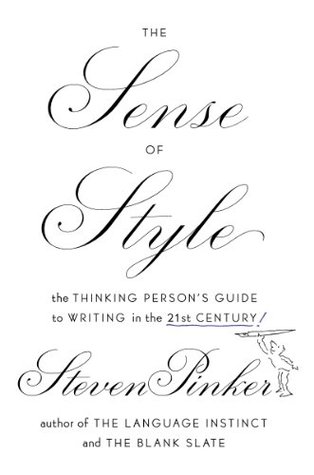More on this book
Community
Kindle Notes & Highlights
Read between
October 5, 2018 - April 29, 2019
The curse of knowledge is insidious, because it conceals not only the contents of our thoughts from us but their very form. When we know something well, we don’t realize how abstractly we think about it. And we forget that other people, who have lived their own lives, have not gone through our idiosyncratic histories of abstractification.
The curse of knowledge is insidious, because it conceals not only the contents of our thoughts from us but their very form. When we know something well, we don’t realize how abstractly we think about it. And we forget that other people, who have lived their own lives, have not gone through our idiosyncratic histories of abstractification.
Though the claim that good prose leads to good thinking is not always true (brilliant thinkers can be clumsy writers, and slick writers can be glib thinkers), it may be true when it comes to the mastery of coherence. If you try to repair an incoherent text and find that no placement of therefores and moreovers and howevers will hold it together, that is a sign that the underlying argument may be incoherent, too.
Though the claim that good prose leads to good thinking is not always true (brilliant thinkers can be clumsy writers, and slick writers can be glib thinkers), it may be true when it comes to the mastery of coherence. If you try to repair an incoherent text and find that no placement of therefores and moreovers and howevers will hold it together, that is a sign that the underlying argument may be incoherent, too.
There is a kind of writer who makes issues of usage impossible to ignore. These writers are incurious about the logic and history of the English language and the ways in which it has been used by its exemplary stylists. They have a tin ear for its nuances of meaning and emphasis. Too lazy to crack open a dictionary, they are led by gut feeling and intuition rather than attention to careful scholarship. For these writers, language is not a vehicle for clarity and grace but a way to signal their membership in a social clique.
There is a kind of writer who makes issues of usage impossible to ignore. These writers are incurious about the logic and history of the English language and the ways in which it has been used by its exemplary stylists. They have a tin ear for its nuances of meaning and emphasis. Too lazy to crack open a dictionary, they are led by gut feeling and intuition rather than attention to careful scholarship. For these writers, language is not a vehicle for clarity and grace but a way to signal their membership in a social clique.
There is a joke about a commuter who’s on his way to work when he gets a call on his mobile phone from his wife. “Be careful, honey,” she says. “They just said on the radio that there’s a maniac driving on the wrong side of the freeway.” “One maniac?” he replies; “There are thousands of them!”
There is a joke about a commuter who’s on his way to work when he gets a call on his mobile phone from his wife. “Be careful, honey,” she says. “They just said on the radio that there’s a maniac driving on the wrong side of the freeway.” “One maniac?” he replies; “There are thousands of them!”


